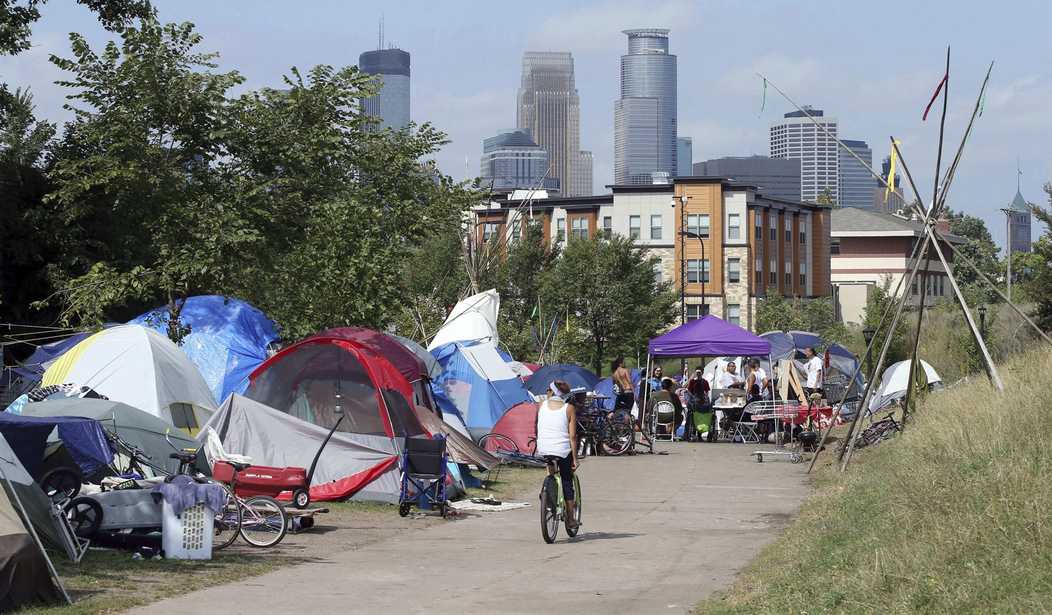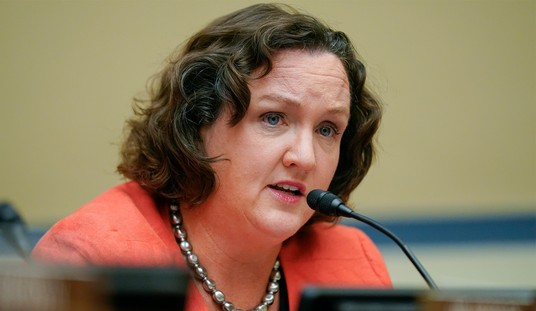A lot of pixels have been spilled in recent years about the problems with homelessness, especially in our major cities; a lot of terrible policies have been put forth in the name of "compassion" that is really just enabling. The homeless enclaves are hotbeds of illegal drug use and mental illness, and most of our major urban areas seem utterly unable to fix the problem.
But for once, some politicians have come up with an idea that might actually help. A change to Medicaid that is now making its way through Congress would allow hospitals to treat addicts in a state hospital for up to one month under the Medicaid program.
Nearly 60 years after Congress barred Medicaid from treating people in what were then derided as insane asylums, lawmakers are on the verge of reversing course.
The reasons: Community-based care championed since the 1960s hasn’t stopped record overdoses — and constituents have had it with the brazen drug use and tent encampments in their cities. Some public health advocates agree that times have changed and the magnitude of the crises justifies lifting the rule.
“It is no longer the 1960s, and there is no longer the same stigma against the treatment of mental health,” said GOP Rep. Michael Burgess, a doctor representing Dallas’ affluent northern suburbs who sponsored a House bill to change the rule.
Here's the catch: To have an actual impact, there would have to be an avenue for involuntary commitment. There is certain to be a percentage of the addicted who would not volunteer for treatment; while I am loathe to favor government interference in a person's life in almost any condition, this has to be an exception. Even for a committed minarchist like myself, one of the few legitimate roles of government is to protect private property and public safety; the open-air drug bazaars that these homeless encampments have become, with the concomitant littering, scattering of human waste, theft, vandalism and destruction of property; these things have to be dealt with, and in some cases that will mean involuntary commitment of offenders. Due process would, of course, have to be observed. But we already have courts in place for that.
See Related:
San Francisco Cleaned Up For Xi Visit. Now, Things Are Back to Normal.
Further Proof Things in San Francisco Have Gotten 'Back to Normal' Since All the Dignitaries Left
Before 1965, the seriously mentally ill were confined and treated, and it's important to note that, before 1965, our cities didn't suffer from massive homeless encampments.
Public health groups including the Treatment Advocacy Center and the National Alliance on Mental Illness, as well as state Medicaid directors, support the change.
They say the 1965 rule barring Medicaid, the federal-state health care program for the poor and lower-middle income, from funding hospital treatment has had unintended consequences: a lack of psychiatric beds for people who need them. Instead, they said, many vulnerable people end up on the streets, in emergency rooms, in jails or dead.
Indeed, this is exactly what is happening. Even here, in the Great Land, the city of Anchorage has reported a record-breaking 51 deaths of the homeless so far this winter — and it's only January 1st. This is intolerable; it can't go on.
Democrats and leftists, in general, love to claim the moral high ground of "compassion." What, I ask you, is more compassionate — to leave these people on the streets or to temporarily confine them, treat them, clean them up, and help them get their lives sorted out?
It won't work in every case. It may not clean up every encampment. But this would seem to be a step in the right direction.














Join the conversation as a VIP Member